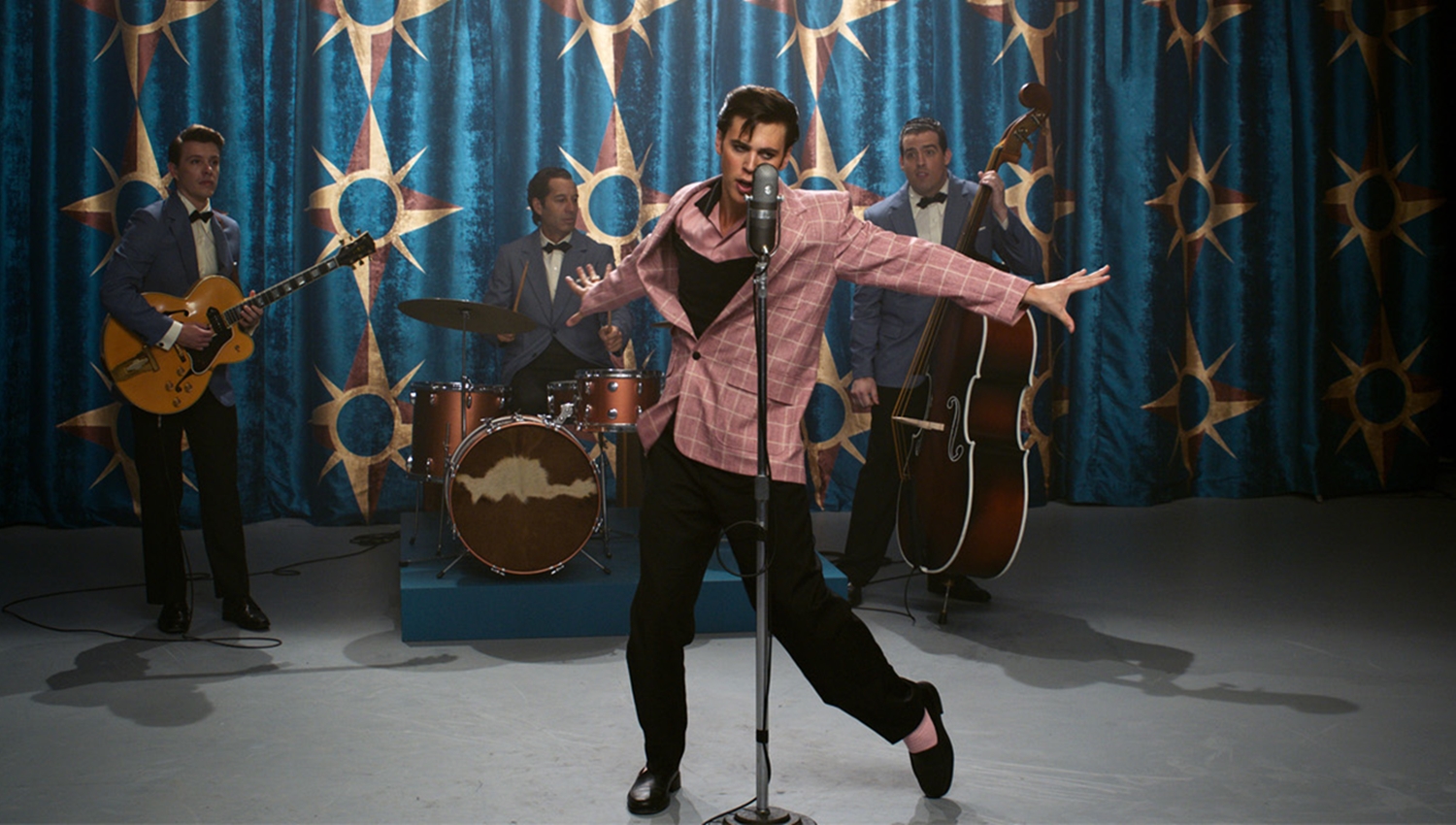The opening sequences of “Elvis” and the introduction to The King are not too dissimilar to that of “Moulin Rouge!” when Satine finally drops into frame. Australian filmmaker and Oscar nominee, Baz Luhrmann has an eccentric style of directing that leans heavy on abundance. His flair for color in every frame, manic editing and gaudy production design seems fitting for a musical biopic about Elvis, who was often larger than life. Luhrmann takes the same circus style mentally he applied to Best Picture nominee “Moulin Rouge!” and uses that here to tell the rise and fall of Elvis Presley.
The catch is its (inconsistently) told from the eyes of Col. Tom Parker. Oscar winner Tom Hanks fills that role with heavy prosthetics and a fat suit, which settles in as more of a distraction than a performance.
“I did not kill Elvis,” Parker tells us in prelude to the story. We see the elderly man look back on his life, beginning with how he met the man who would become a worldwide sensation; from his childhood in poverty, to all the many significant and seemingly insignificant influences Elvis (Austin Butler) soaked up as a child. Although his parents, Gladys (Helen Thomson) and Vernon Presley (Richard Roxburgh), were suspicious of Parker and his promises of riches and fame, they supported their talented son as a celebrity. But controversy hit fast for the Memphis star. Parker needed a way to control Elvis, preying on his naïveté and lust for fame — puppeteer and the puppet.
It’s Butler’s performance and charisma that carries the misguided film to its conclusion.
Parker keeps calling Elvis “the greatest show on Earth,” which is ironic, considering both the outcome, and Luhrmann’s excessive carnival atmosphere. The first 30 minutes of “Elvis” certainly look and feel like a ride — we are dazzled with so much pizzaz there wasn’t much time to point out faults or praise. Young girls’ reaction to the thrusts and moves Elvis shocked the nation with are captured in hysterical clarity. The briefly animated comic-book style backstory is a jarring miscalculation.
Like a pre-workout drink leaving you to crash after all that caffeine, “Elvis” slows way down 90 minutes in. Gone are the quick edits, the flashy numbers and the toe-tapping beats that energized the beginning. The script naturally falls into what most musical biopics do, documenting the rise and fall of the artist.
It’s Butler’s performance and charisma that carries the misguided film to its conclusion. His “Oscar scene,” if you will, occurs when he finally accuses Parker of mishandling his career. Like many moments in “Elvis,” the script invents plausible scenes and conversations that may have never taken place. Some of the best acting is found in these moments. It doesn’t take long to lose sight of Butler as he becomes this version of Elvis — he disappears into the role.
Hanks, on the other hand, is always visible despite the makeup. Fans of Elvis might be unfazed by the big cinematic swing Luhrmann is taking, and those who loved the bombastic direction of “The Great Gatsby,” “Moulin Rouge” or “Romeo + Juliet” might relish in the excess. It’s the cinephile who’s likely to struggle most with such an uneven, head-scratching, cliché-filled assembly.
Final Thought
Butler’s star-making performance will please everyone, regardless of what you think of the film.

